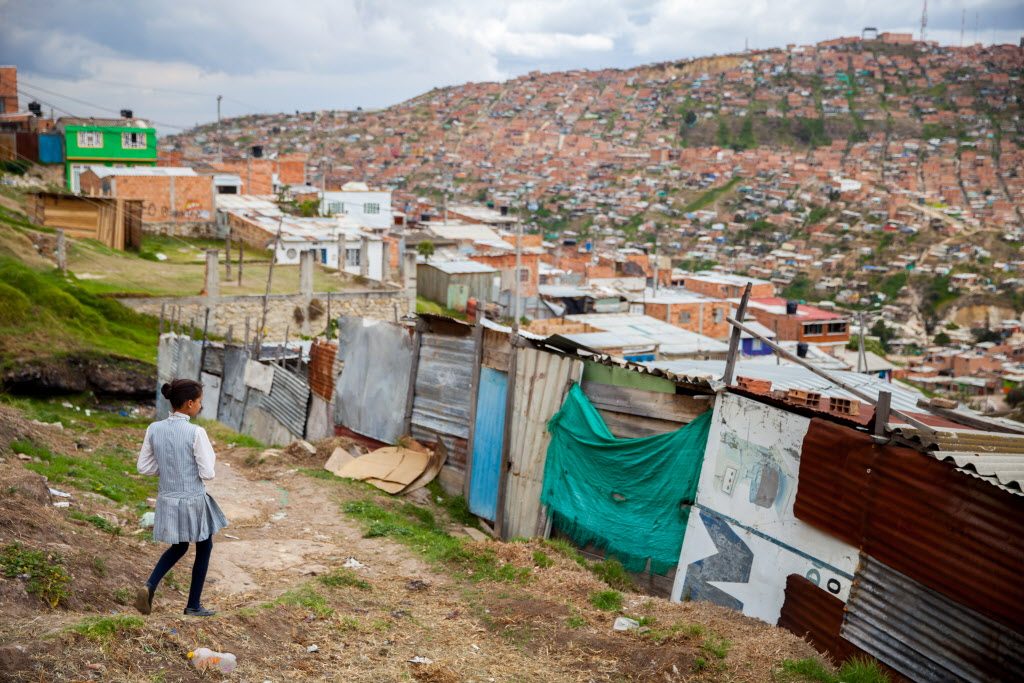In our rapidly urbanising world, decent living conditions are becoming scarce. In 2050, an expected 70% of the world’s population will be living in urban areas.

Cities are unprepared to accommodate this growth, especially in developing countries where formal structures are not in place.
Most new city dwellers live in informal settlements, which are often overcrowded, unsafe and unsanitary. One of the many reasons that slums and informal settlements develop is a lack of available financial services to help community members access better-quality materials, which would result in safer and healthier homes. Other reasons include land values and competition over land rights — increasing the potential for conflict. Often, the poor are forcibly evicted and pushed to the edge of cities to unplanned and poorly serviced areas.
People living in slums lack the crucial conditions they need to thrive. Slums lack sufficient living space, access to water and sanitation, durability, and secure tenure. In some countries, as much as 90 percent of urban populations live in slums.
To transform slums into sustainable communities, private and public sectors need to cooperate with communities to expand capacity and available resources. In order to prevent the number of slum dwellers from reaching 2 billion by 2030, as projected, slum upgrading must be prioritised to realise a world where everyone has a decent place to live.
Slum upgrading includes fostering inclusion and promoting economic development. It brings together access to land and security of tenure, and provision of basic services as critical components of the urban planning framework.
Slum upgrading can be more efficient if access to secure tenure is accompanied by access to microfinance, enabling slum residents to improve their own living conditions. Microfinance offers small loans which are based on an individual’s income. Once a family repays the loan, they can apply for a new loan, and can continue improving their home. Although most living conditions in slum communities are considered inadequate, with microfinance they can be improved. Even a very low-cost improvement like putting in a concrete floor or new roof can massively reduce parasitic infections and diarrhea in children.
Residents of slum communities play a vital role in a city’s economy in developing countries. When slums become livable habitats, cities become more equitable, inclusive and sustainable. Habitat for Humanity is working to secure land rights and provide microfinance solutions for slum dwellers, and is advocating for policies that improve access to basic sanitation services.